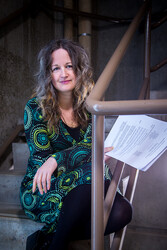Get our latest staff recommendations, classroom reading guides and discover assets for your stores and social media channels. Receive the Children’s Bookseller newsletter to your inbox when you sign up, plus more from Simon & Schuster.If you are an independent bookseller in the U.S. and would like to be added to our independent bookseller newsletter, please email indies@simonandschuster.com
Table of Contents
About The Book
The green fields, rugged highlands, and rolling hills of England, Scotland, and Wales are commonly associated with adventure, romance, and seclusion as well as literary figures like Jane Austen and William Wordsworth. But in reality, many of these rural places—with their country houses, lakes, and shorelines—were profoundly changed by British colonial activity. Even hamlets and villages were affected by distant colonial events.
Taking ten country walks, author Corinne Fowler explores the unique colonial dimensions of British agriculture, copper-mining, landownership, wool-making, coastal trade, and factory work in cotton mills. One route shows the links between English country houses and Indian colonization. Another explores banking history in Southern England and its link to slavery on Louisianan plantations. Other walks uncover the historical impact of sugar profits on the Scottish isles and 18th-century tobacco imports on an English coastal port. The history of these countryside locations—and the people who lived and worked in them—is closely bound up with colonial rule in far-away continents.
Accompanying the author on her walks are a fascinating group of people—artists, musicians, and writers—with strong attachments to the landscapes featured in this book and family links to former British colonies like Barbados and Senegal. These companions illuminate the meaning of colonial history in local settings. Crucially, this is not just a history book but a compassionate reflection on the way we respond to sensitive, shared histories which link people across cultures, generations, and political divides.
Product Details
- Publisher: Scribner (June 11, 2024)
- Length: 432 pages
- ISBN13: 9781668003992
Browse Related Books
Raves and Reviews
“[A] revelatory travelogue-cum-exposé…The account transfixes throughout…This is a staggering look at some of the less-studied repercussions of colonialism.”
—Publishers Weekly, starred review
“A deftly critical, readable contribution to the historiography of empire… Fascinating.”
—Kirkus Reviews
“This is real, difficult, essential history delivered in the most eloquent and accessible way. Her case, that rural Britain has been shaped by imperialism, is unanswerable, and she makes her arguments beautifully. An important book.”
—Sathnam Sanghera, author of Empireland
“A detailed and thoughtful exploration of historical connections that for too long have been obscured. A powerful book that brings the history of the Empire home—literally.”
—David Olusoga, author of Black and British: A Forgotten History
“In this timely, important and wonderfully engaging book, Corinne Fowler does three of my favorite things: walking in beautiful corners of the British Isles, talking with fascinating people, and shining a much-needed light on the colonial and economic histories of the places we think we know. A true act of patriotism, and a delight to read.”
—Jon McGregor, author of Reservoir 13
“Corinne Fowler emphatically demolishes any claim that Britain was untouched by empire outside of London and the major port cities. She shows how the human and economic impact of slavery and colonialism was felt in myriad ways in places often seen as isolated from global events. Taking her readers from the remote isle of Jura to the rugged landscapes of Wordsworth’s Lake District to the quintessentially English Cotswolds, Fowler vividly illustrates the long reach of empire into every corner of the country.”
—Stephanie Barczewski, author of How the Country House Became English
“Corinne Fowler’s engrossing walks through the English countryside offer a meticulous portrait of the colonial influences on the making of British landscapes and houses. In combining a love of rural walks and villages with the empire that affected them and their workers, she shows that “connected histories” deserve to be remembered and faced rather than erased, and that historical knowledge expands, rather than diminishes, our understanding of place and time.”
—Gretchen Gerzina, author of Black England
“Part poetic travelogue and part deeply researched history, The Countryside is entirely engrossing. Corinne Fowler is an ideal guide for walks through Britain’s rural meadows, forests, and lawns. Her insightful meditations on their hidden histories will stay with you long after you finish the book.”
—Megan Kate Nelson, Pulitzer-Prize finalist and author of The Three-Cornered War and Saving Yellowstone
Resources and Downloads
High Resolution Images
- Book Cover Image (jpg): The Countryside eBook 9781668003992
- Author Photo (jpg): Corinne Fowler Photograph by Osbourne Photography(0.1 MB)
Any use of an author photo must include its respective photo credit





